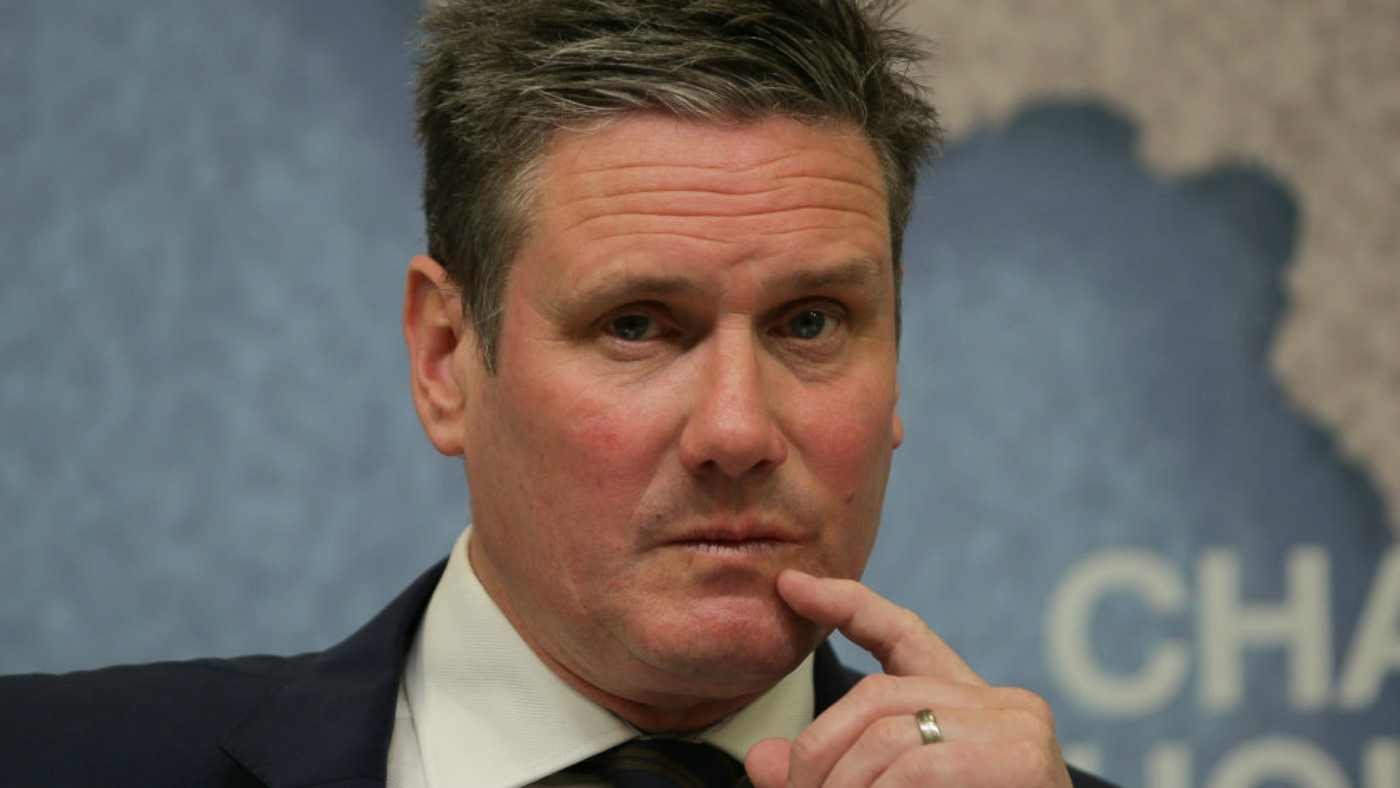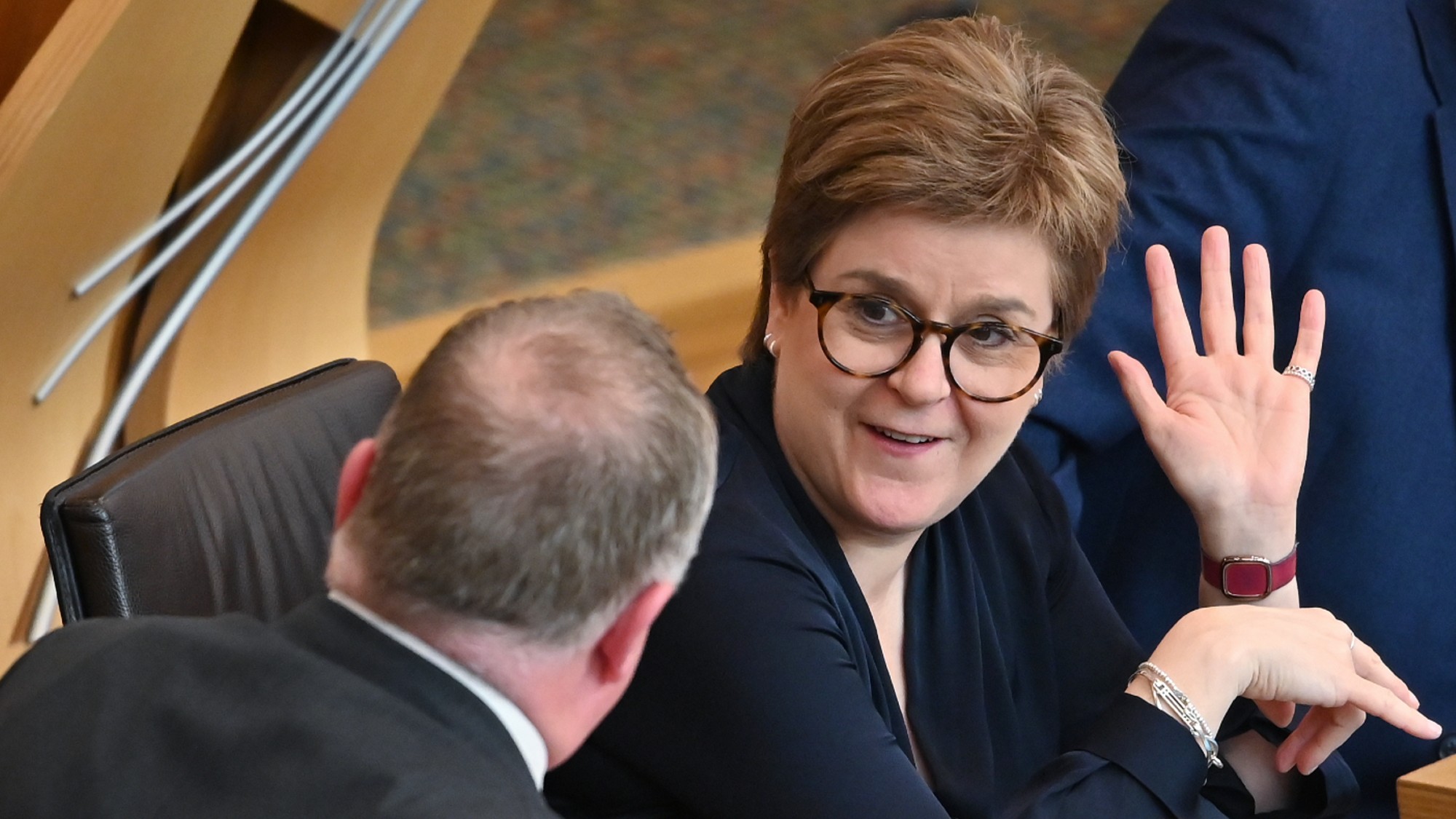What is a ‘federal Britain’?
Labour leadership front-runners Keir Starmer and Rebecca Long-Bailey pushing for more devolution of power

A free daily email with the biggest news stories of the day – and the best features from TheWeek.com
You are now subscribed
Your newsletter sign-up was successful
Keir Starmer is set to call for a fully federal UK, with devolved power for the nations and regions of England, Scotland, Wales and Northern Ireland.
Kicking off a week on the campaign trail across Britain, the shadow Brexit secretary and Labour leadership front-runner will argue in a speech today that only a federal structure could “repair the shattered trust in politics”.
The UK needs to “put power, wealth and opportunity back into the hands of the people”, Starmer will say, amid increasing demands for a second Scottish independence referendum.
The Week
Escape your echo chamber. Get the facts behind the news, plus analysis from multiple perspectives.

Sign up for The Week's Free Newsletters
From our morning news briefing to a weekly Good News Newsletter, get the best of The Week delivered directly to your inbox.
From our morning news briefing to a weekly Good News Newsletter, get the best of The Week delivered directly to your inbox.
What would federalism look like?
Starmer’s vision for federalism would see a great deal of the power that Westminster currently holds devolved to the regions and nations of the UK.
“We need a new constitutional settlement, a large-scale devolution of power and resources. This will involve building a new long-term political and constitutional consensus. I believe that could best be built on the principle of federalism,” he will say in a speech in east London.
His vision for devolved power is shared by fellow leadership contender Rebecca Long-Bailey. Speaking at an Open Labour event on Sunday, the shadow business secretary said that the Scottish and Welsh parliaments need to be put on an “equal footing” with Westminster instead of being “servile” satellites, reports The Guardian.
A free daily email with the biggest news stories of the day – and the best features from TheWeek.com
“I’m always going to argue for the union,” she said. “But I want our Scottish parliament and our Welsh parliament to feel as completely autonomous and independent as they possibly can whilst having that collaborative relationship with Westminster.
“That’s why we need to devolve real power – fiscal power, economic power and political power – to Wales and Scotland.”
What are the pros and cons?
Supporters of more devolved power say it would give a stronger voice to regions and nations of the UK that are being ignored by Westminster.
The UK government is currently ploughing ahead with its Brexit Withdrawal Agreement Bill despite the Welsh and Northern Irish Assemblies and the Scottish Parliament all voting to reject it - the first time that all three devolved parliaments have refused to consent to central government legislation that affects devolved matters, according to BBC Wales political editor Felicity Evans.
Devolving more power has long been touted as a way to answer calls from Scotland for more independence.
“Federalism deserves a serious airing,” says Henry McLeish in The Scotsman. “Scotland needs a consensus on a way forward. A new approach to the Scotland question must overcome the pitfalls, poison and deeper political questions posed by Brexit. Federalism is all about ‘effective’ power. Rejection by unionists will inevitably lead to an independent Scotland, time line unknown.”
But critics of federalism say that there is no clear way of making it work, largely thanks to the English question - how England, representing 85% of the UK population, would be represented.
An English parliament would not make sense alongside a Westminster government, while regional devolved administrations could end up taking power not from central government but rather from local authorities.
Has it been tried before?
Many British prime ministers have grappled with the question of federalism, “from Gladstone to Asquith; Lloyd George and Churchill”, as the Financial Times has noted.
“Then the concern was Ireland; now many worry about the very survival of the UK,” the newspaper adds.
The most recent political leader to champion the idea was former Labour PM Gordon Brown, following the Scottish independent referendum of 2014 that saw Scotland vote to remain part of the UK.
Brown called for a “patriotic third way” that would hand power over fisheries, farming and welfare to devolved governments, along with far greater say in taxation.
However, the Scottish National Party (SNP) dismissed the idea as undeliverable, arguing that Labour at that time was “not even in a position to deliver a pizza”.
Earlier this month, Brown made the case once again for a “constitutional revolution” that would go beyond “cosmetic” ideas such as moving the House of Lords to York, says the LabourList news site.
-
 The ‘ravenous’ demand for Cornish minerals
The ‘ravenous’ demand for Cornish mineralsUnder the Radar Growing need for critical minerals to power tech has intensified ‘appetite’ for lithium, which could be a ‘huge boon’ for local economy
-
 Why are election experts taking Trump’s midterm threats seriously?
Why are election experts taking Trump’s midterm threats seriously?IN THE SPOTLIGHT As the president muses about polling place deployments and a centralized electoral system aimed at one-party control, lawmakers are taking this administration at its word
-
 ‘Restaurateurs have become millionaires’
‘Restaurateurs have become millionaires’Instant Opinion Opinion, comment and editorials of the day
-
 How corrupt is the UK?
How corrupt is the UK?The Explainer Decline in standards ‘risks becoming a defining feature of our political culture’ as Britain falls to lowest ever score on global index
-
 The high street: Britain’s next political battleground?
The high street: Britain’s next political battleground?In the Spotlight Mass closure of shops and influx of organised crime are fuelling voter anger, and offer an opening for Reform UK
-
 ‘It’s hard not to feel for the distillers’
‘It’s hard not to feel for the distillers’Instant Opinion Opinion, comment and editorials of the day
-
 Is a Reform-Tory pact becoming more likely?
Is a Reform-Tory pact becoming more likely?Today’s Big Question Nigel Farage’s party is ahead in the polls but still falls well short of a Commons majority, while Conservatives are still losing MPs to Reform
-
 Five takeaways from Plaid Cymru’s historic Caerphilly by-election win
Five takeaways from Plaid Cymru’s historic Caerphilly by-election winThe Explainer The ‘big beasts’ were ‘humbled’ but there was disappointment for second-placed Reform too
-
 Taking the low road: why the SNP is still standing strong
Taking the low road: why the SNP is still standing strongTalking Point Party is on track for a fifth consecutive victory in May’s Holyrood election, despite controversies and plummeting support
-
 Nicola Sturgeon's memoir: making the personal political
Nicola Sturgeon's memoir: making the personal politicalTalking Point Former Scottish first minister attempts to set record straight in 'Frankly' but does she leave more questions than answers?
-
 What difference will the 'historic' UK-Germany treaty make?
What difference will the 'historic' UK-Germany treaty make?Today's Big Question Europe's two biggest economies sign first treaty since WWII, underscoring 'triangle alliance' with France amid growing Russian threat and US distance